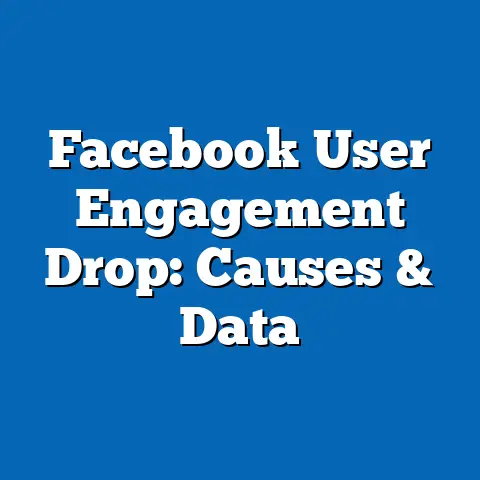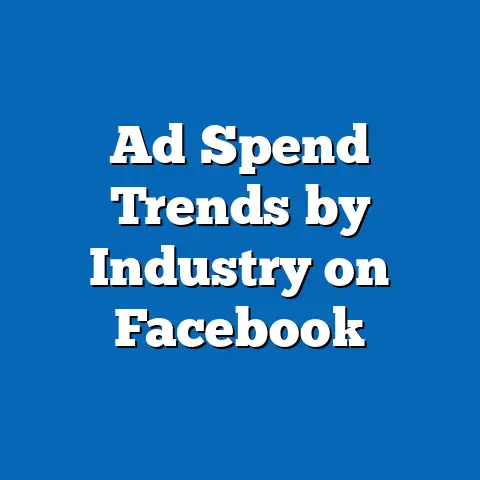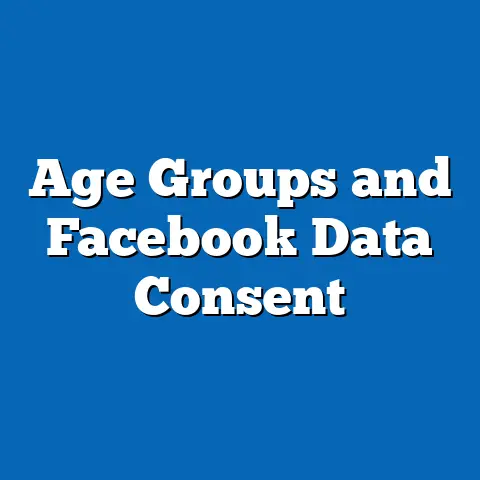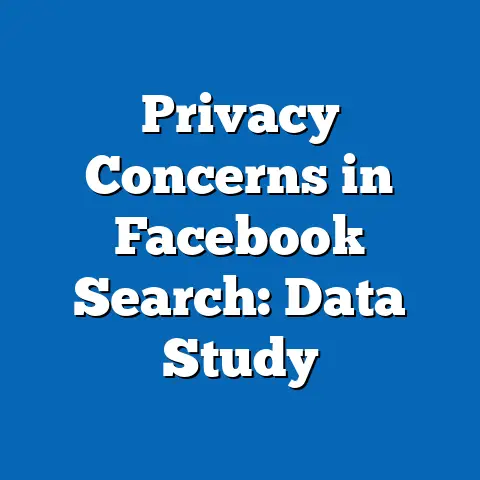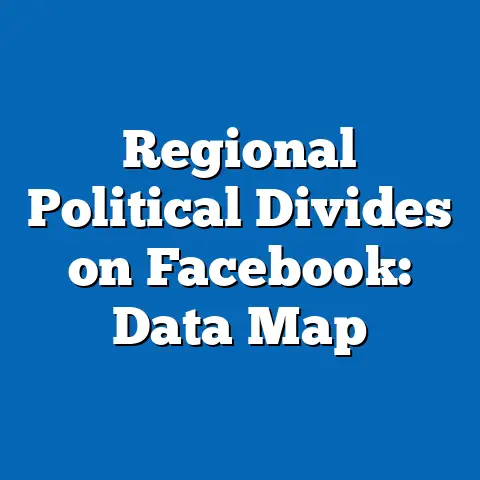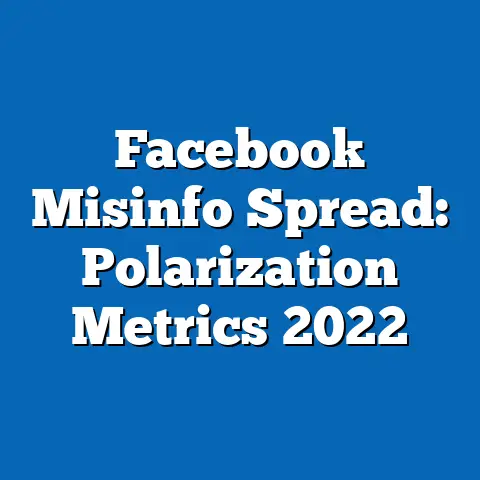User Privacy Concerns on Facebook: Stats
In an era where personal information is as valuable as currency, the issue of user privacy on social media platforms like Facebook has become a defining concern of the 21st century.
Since its inception in 2004, Facebook has grown from a college networking site to a global behemoth with over 2.9 billion monthly active users as of 2023, according to Statista.
Yet, this unprecedented connectivity comes at a cost—a persistent tension between the benefits of sharing and the risks of exposure.
This article delves into the intricate landscape of user privacy concerns on Facebook, exploring how these issues resonate across different generations.
From Baby Boomers to Gen Z, each cohort brings unique perspectives shaped by their historical context, technological familiarity, and societal values.
Privacy scandals, such as the 2018 Cambridge Analytica debacle, have not only eroded trust but also highlighted the varying ways generations perceive and respond to data security risks.
The societal implications are profound: as digital footprints expand, questions of surveillance, data monetization, and personal autonomy loom large.
This analysis aims to unpack the statistical trends, generational differences, and broader impacts of privacy concerns on Facebook, offering a nuanced understanding of a critical issue in our interconnected world.
Defining Privacy Concerns in the Digital Age
User privacy on platforms like Facebook encompasses a range of issues, including data collection, third-party sharing, targeted advertising, and the potential for data breaches.
According to a 2022 Pew Research Center survey, 81% of Americans believe the risks of data collection by companies outweigh the benefits, a sentiment that has grown in the wake of high-profile incidents.
These concerns are not merely technical but deeply personal, touching on fundamental rights to autonomy and self-expression.
The historical context of privacy in the digital realm traces back to the early internet era of the 1990s, when data protection was an afterthought.
Facebook’s rise in the 2000s coincided with a shift toward user-generated content, often at the expense of robust privacy safeguards.
Societally, privacy concerns influence trust in institutions, shape consumer behavior, and even impact political discourse, as seen in misinformation campaigns enabled by data misuse.
This section sets the stage for a generational analysis, recognizing that while privacy is a universal concern, its interpretation and prioritization vary widely across age groups.
Generational Definitions and Historical Contexts
To understand how different generations approach privacy on Facebook, it’s essential to define each cohort and the historical events that shaped their worldviews.
These contexts provide a lens through which to interpret statistical trends and behavioral patterns.
Baby Boomers (Born 1946–1964):
Baby Boomers grew up in a post-World War II era of economic prosperity and social change, witnessing the Civil Rights Movement and the Cold War.
Their relationship with technology is often one of adaptation rather than immersion, as they entered adulthood before the internet’s advent.
Privacy for Boomers often relates to traditional notions of personal boundaries, though many have embraced social media—about 70% of U.S.
Boomers use Facebook, per a 2021 Pew Research report.
Generation X (Born 1965–1980):
Gen Xers came of age during a period of economic uncertainty, the rise of personal computing, and the early internet.
Sandwiched between larger cohorts, they are often characterized as independent and skeptical of institutions.
Their privacy concerns blend analog-era values with digital awareness, with many adopting cautious online behaviors—only 64% share personal information on social media, compared to younger cohorts (Pew Research, 2022).
Millennials (Born 1981–1996):
Millennials, the first “digital natives,” grew up alongside the internet and social media, with Facebook launching during their formative years.
Shaped by events like 9/11 and the 2008 financial crisis, they value connectivity but are increasingly wary of data exploitation—74% have adjusted privacy settings on social media following scandals (Statista, 2021).
Their dual role as early adopters and privacy advocates makes their perspective particularly complex.
Generation Z (Born 1997–2012):
Gen Z has never known a world without the internet, smartphones, or social media.
Influenced by global challenges like climate change and data breaches, they are tech-savvy yet privacy-conscious, often favoring platforms with ephemeral content like Snapchat over Facebook.
Despite lower usage (only 32% of U.S.
Gen Z uses Facebook daily, per eMarketer 2023), their concerns about data security are acute, with 87% expressing worry over personal information misuse (Pew Research, 2023).
These generational snapshots reveal how historical and technological contexts shape attitudes toward privacy.
The next sections explore statistical trends and specific concerns on Facebook, highlighting both commonalities and divergences.
Statistical Overview: Privacy Concerns Across Generations
Data on user privacy concerns provides a quantitative foundation for understanding generational differences on Facebook.
Multiple studies underscore a growing unease across all age groups, though the intensity and focus of these concerns vary.
General Trends:
A 2023 report by the Data & Marketing Association found that 68% of global Facebook users are concerned about how their data is used, up from 55% in 2018 post-Cambridge Analytica.
Data breaches, such as the 2019 incident affecting 540 million users, have fueled distrust.
Additionally, 62% of users worldwide feel they lack control over their information on the platform (GlobalWebIndex, 2023).
Baby Boomers:
Boomers exhibit significant concern over identity theft and financial scams, with 73% citing these as top privacy fears on Facebook (AARP, 2022).
Their limited tech literacy sometimes exacerbates vulnerabilities—only 45% regularly update privacy settings, compared to 70% of Millennials (Pew Research, 2022).
However, their usage remains high, often driven by a desire to connect with family, suggesting a trade-off between privacy and social utility.
Generation X:
Gen X displays a balanced but cautious approach, with 67% expressing concern over data sharing with third parties (Statista, 2022).
They are more likely to limit posts or deactivate accounts temporarily—28% have done so in the past year (Pew Research, 2023).
Their skepticism of corporate motives often translates into proactive behaviors, such as using ad blockers or VPNs.
Millennials:
Millennials, despite being heavy users (84% on Facebook, per eMarketer 2023), are highly attuned to privacy issues, with 79% worried about targeted advertising and data monetization (Deloitte, 2022).
They are the most likely to engage with privacy tools—82% have restricted app permissions or deleted posts (Pew Research, 2023).
This reflects a generational shift toward digital literacy and self-protection.
Generation Z:
Gen Z’s privacy concerns are the most pronounced, with 91% citing unease over data collection practices (Morning Consult, 2023).
Their lower reliance on Facebook means they are less exposed, but when active, they prioritize anonymity—65% use pseudonyms or private accounts (eMarketer, 2023).
Their concerns often extend beyond personal data to broader ethical issues, such as algorithmic bias.
These statistics reveal a spectrum of awareness and action, influenced by each generation’s relationship with technology.
While Boomers may prioritize immediate risks like scams, Gen Z focuses on systemic issues, illustrating the diversity of privacy concerns.
Key Privacy Issues on Facebook: A Generational Lens
Several core privacy issues on Facebook resonate across generations, though their significance and interpretation differ.
This section examines data collection, third-party sharing, and security breaches through a generational perspective.
Data Collection and Transparency:
Facebook’s business model relies on extensive data collection, often without clear user consent.
A 2021 Consumer Reports survey found that 72% of users across all ages feel misled by the platform’s privacy policies.
Boomers and Gen X are less likely to understand the scope of data tracking (only 40% and 52%, respectively, read terms of service), while Millennials and Gen Z actively seek transparency—68% of the latter demand clearer data usage disclosures (Statista, 2023).
Third-Party Sharing and Cambridge Analytica Fallout:
The 2018 Cambridge Analytica scandal, where data from 87 million users was misused for political targeting, remains a pivotal event.
Its impact varies: 65% of Boomers view it as a distant issue, while 83% of Millennials and 89% of Gen Z see it as emblematic of systemic flaws (Pew Research, 2022).
Gen X, often politically engaged, shows a middle ground with 74% expressing ongoing distrust in data-sharing practices.
Security Breaches and Personal Safety:
High-profile breaches, such as the 2021 leak of 533 million users’ phone numbers, heighten fears of personal safety.
Boomers are most concerned about direct consequences like fraud (78% cite this as a top fear, AARP 2022), while younger generations worry about long-term risks like identity misuse—85% of Gen Z fear “digital permanence” of leaked data (Morning Consult, 2023).
These differing focuses reflect generational priorities in navigating digital risks.
These issues underscore a shared unease but highlight how historical exposure to technology and cultural values shape responses.
Younger generations, immersed in digital ecosystems, often exhibit greater skepticism, while older cohorts grapple with practical vulnerabilities.
Technological, Economic, Social, and Cultural Factors
Generational attitudes toward privacy on Facebook are influenced by a web of interconnected factors.
Understanding these drivers provides deeper insight into statistical trends and behavioral differences.
Technological Familiarity:
The degree of tech savviness significantly impacts privacy behaviors.
Boomers, often late adopters, may struggle with complex privacy settings, leaving them exposed—only 30% use two-factor authentication (AARP, 2022).
Conversely, Gen Z’s fluency allows for proactive measures, with 75% employing privacy-focused apps or browser extensions (eMarketer, 2023).
Millennials and Gen X fall in between, balancing adoption with caution.
Economic Considerations:
Economic status influences how users weigh privacy against convenience.
Boomers, often retired or financially stable, may prioritize ease of use over data security, while Millennials, burdened by student debt or gig economy pressures, may tolerate data sharing for free services—60% accept targeted ads for cost savings (Deloitte, 2022).
Gen Z, entering the workforce, shows mixed behavior, often seeking premium privacy features despite budget constraints.
Social Dynamics:
Social norms around sharing also play a role.
Boomers use Facebook primarily for family connections, often oversharing personal updates—55% post photos without privacy filters (Pew Research, 2022).
Millennials and Gen Z, shaped by influencer culture, are more selective, with 70% curating content for specific audiences (Statista, 2023).
Gen X, valuing privacy as a principle, often limits social exposure altogether.
Cultural Shifts:
Cultural attitudes toward privacy have evolved, influenced by global events and media narratives.
The post-9/11 surveillance culture desensitized some Boomers and Gen X to data monitoring, while Millennials and Gen Z, raised on stories of corporate overreach, view privacy as a fundamental right—88% of Gen Z support stricter data laws like GDPR (Morning Consult, 2023).
These cultural lenses shape generational advocacy and behavior.
These factors illustrate the complexity of privacy concerns, showing that generational differences are not merely age-based but rooted in broader systemic influences.
This nuanced perspective avoids oversimplification and acknowledges diversity within cohorts.
Societal, Cultural, and Workplace Implications
The ripple effects of privacy concerns on Facebook extend far beyond individual users, impacting society, culture, and professional environments.
These implications vary by generation but collectively shape the digital landscape.
Societal Impact:
Privacy erosion on platforms like Facebook undermines public trust in technology, with 76% of Americans across generations believing social media companies wield too much power (Pew Research, 2023).
This distrust fuels calls for regulation, evident in policies like the EU’s GDPR and California’s CCPA.
Younger generations, particularly Gen Z, are driving activism for data rights, with 65% supporting “right to be forgotten” laws (Statista, 2023), while older cohorts often defer to institutional solutions.
Cultural Shifts:
Culturally, privacy concerns are redefining norms around self-disclosure.
Boomers’ openness on Facebook contrasts with Gen Z’s preference for anonymity or temporary content, signaling a generational pivot toward digital restraint.
This shift influences content creation and consumption, with platforms adapting—Facebook’s introduction of “Stories” mirrors Gen Z’s ephemeral sharing habits (eMarketer, 2023).
Workplace Dynamics:
In professional settings, privacy issues on Facebook affect hiring, employee monitoring, and corporate responsibility.
Millennials and Gen Z are wary of employers accessing personal profiles—72% lock social media accounts during job searches (CareerBuilder, 2022).
Meanwhile, Boomers and Gen X, often in leadership roles, face pressure to implement data ethics policies, with 58% of executives citing privacy as a top concern for talent retention (Deloitte, 2023).
These broader impacts highlight how generational privacy concerns on Facebook intersect with systemic issues, from policy to personal identity.
The diversity of responses underscores the need for tailored solutions that respect generational priorities.
Comparative Analysis: Commonalities and Contrasts
While each generation exhibits unique privacy concerns on Facebook, there are shared themes and stark contrasts worth exploring.
This comparison avoids stereotypes by focusing on data-driven insights.
Commonalities:
Across all generations, there is a universal unease about data misuse, with 70% of users expressing concern over unauthorized access (GlobalWebIndex, 2023).
The Cambridge Analytica scandal serves as a collective touchstone, diminishing trust across the board.
Additionally, the desire for control over personal information unites generations—over 60% in each cohort have adjusted privacy settings at least once (Pew Research, 2023).
Contrasts:
Differences emerge in the prioritization of risks and coping mechanisms.
Boomers focus on tangible threats like financial scams, while Gen Z emphasizes abstract issues like algorithmic manipulation—only 35% of Boomers consider this a concern, compared to 80% of Gen Z (Morning Consult, 2023).
Behavioral responses also vary: Millennials and Gen Z are more likely to abandon platforms (45% have considered quitting Facebook), whereas Boomers and Gen X often persist despite reservations (eMarketer, 2023).
These patterns reveal a generational spectrum of awareness and action, shaped by historical exposure to technology and cultural values.
Recognizing both overlap and divergence ensures a balanced analysis that respects individual agency within cohorts.
Expert Perspectives and Qualitative Insights
Beyond statistics, expert opinions and qualitative research enrich our understanding of generational privacy concerns.
Scholars and industry leaders offer critical insights into the evolving landscape.
Dr. Shoshana Zuboff, author of The Age of Surveillance Capitalism, argues that platforms like Facebook exploit user data as a core business strategy, disproportionately impacting less tech-savvy groups like Boomers.
Her work highlights how generational disparities in digital literacy exacerbate privacy risks, a theme echoed in user focus groups where Boomers often report feeling “overwhelmed” by data policies (Zuboff, 2019).
Conversely, tech ethicist Tristan Harris emphasizes Gen Z’s role as “privacy pioneers,” noting their advocacy for systemic change through movements like #DeleteFacebook.
Harris’s Center for Humane Technology cites qualitative data showing younger users’ preference for decentralized, privacy-first platforms (Harris, 2022).
These perspectives complement quantitative findings, illustrating the interplay between structural issues and generational agency.
They also underscore the diversity of experiences within cohorts, avoiding reductive narratives.
Forward-Looking Insights: The Future of Privacy on Facebook
As privacy concerns continue to evolve, several trends and uncertainties shape the future of user trust on Facebook.
These insights offer a glimpse into potential developments while acknowledging the complexity of prediction.
Technological Innovations:
Emerging tools like blockchain-based identity systems or AI-driven privacy assistants could empower users across generations.
However, adoption may vary—Gen Z and Millennials are likely early adopters, while Boomers may lag due to accessibility barriers (Deloitte, 2023).
Facebook’s own initiatives, such as enhanced encryption in Messenger, signal responsiveness but face skepticism given past missteps.
Regulatory Landscape:
Global regulations will play a pivotal role, with younger generations driving demand for stricter laws.
The success of GDPR suggests a model for user empowerment, though enforcement challenges remain—only 25% of users feel current laws adequately protect them (Statista, 2023).
Cross-generational education on data rights will be crucial to bridge awareness gaps.
Cultural Evolution:
The cultural shift toward privacy as a right, rather than a privilege, may redefine social media usage.
Gen Z’s influence could accelerate this, pushing platforms like Facebook to prioritize user control or risk obsolescence.
Yet, economic incentives for data monetization pose a persistent counterforce, creating uncertainty about long-term change.
These forward-looking considerations highlight the dynamic interplay of technology, policy, and culture.
While the path ahead is unclear, generational differences will undoubtedly shape the trajectory of privacy on Facebook and beyond.
Conclusion: Navigating a Shared Digital Future
User privacy concerns on Facebook represent a multifaceted challenge, deeply intertwined with generational identities, historical contexts, and societal shifts.
From Baby Boomers’ practical fears of fraud to Gen Z’s systemic critiques of data ethics, each cohort brings a distinct perspective to a universal issue.
Statistical trends reveal growing unease—68% of global users worry about data usage (GlobalWebIndex, 2023)—while qualitative insights underscore the diversity of experiences within and across generations.
The implications are far-reaching, influencing trust in technology, cultural norms around sharing, and workplace dynamics.
As society grapples with these challenges, tailored solutions that respect generational nuances—whether through education for Boomers or advocacy platforms for Gen Z—will be essential.
Looking ahead, technological innovation and regulatory reform offer hope, though uncertainties persist in balancing user rights with corporate interests.
Ultimately, understanding generational privacy concerns on Facebook is not just about data; it’s about preserving autonomy in an increasingly connected world.
By fostering dialogue and action across age groups, we can navigate toward a digital future that prioritizes both connection and control.

